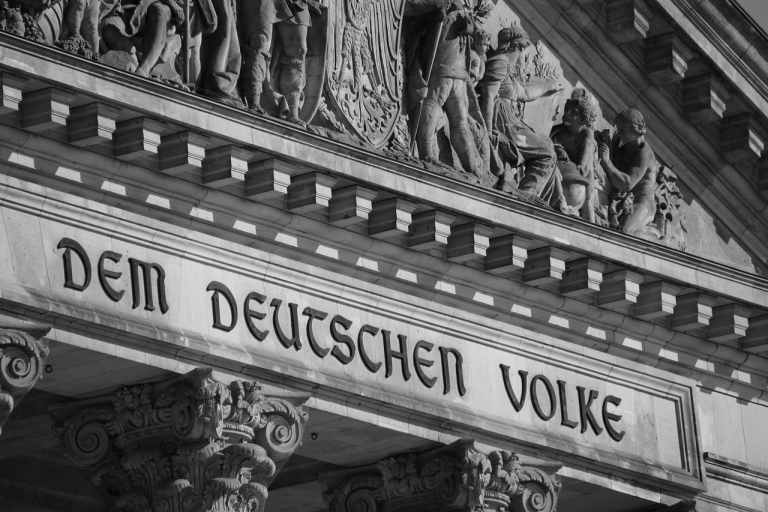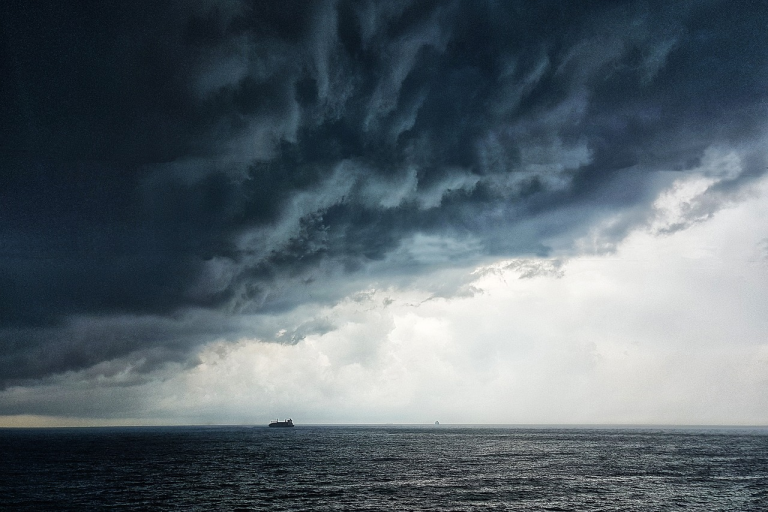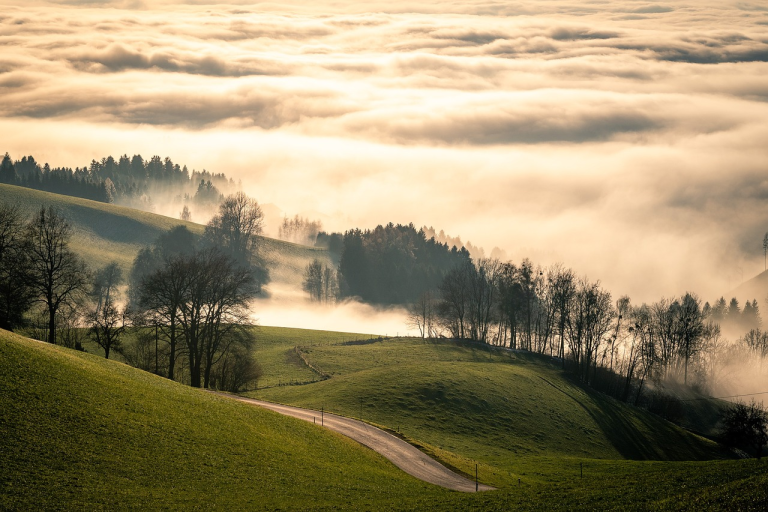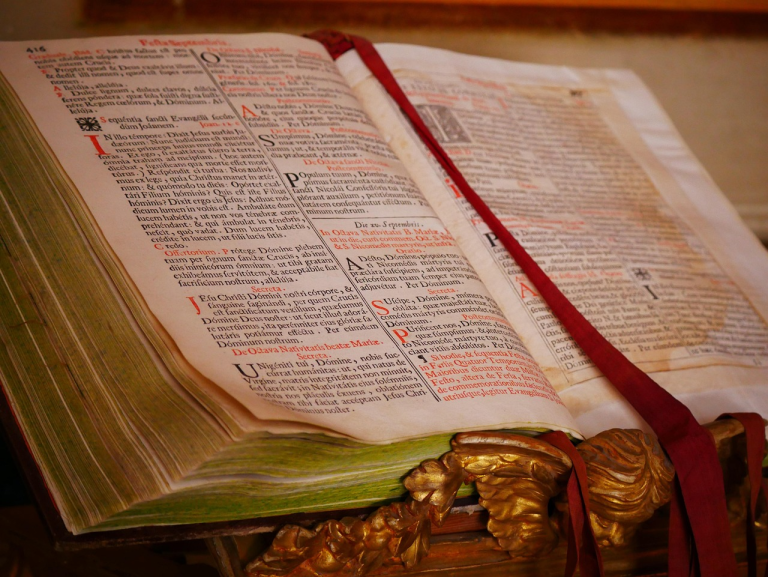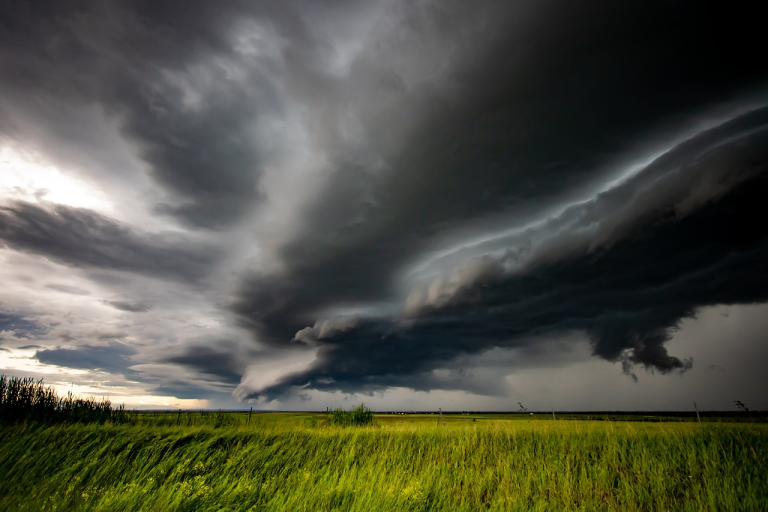Advent Meditation: Peace on Earth
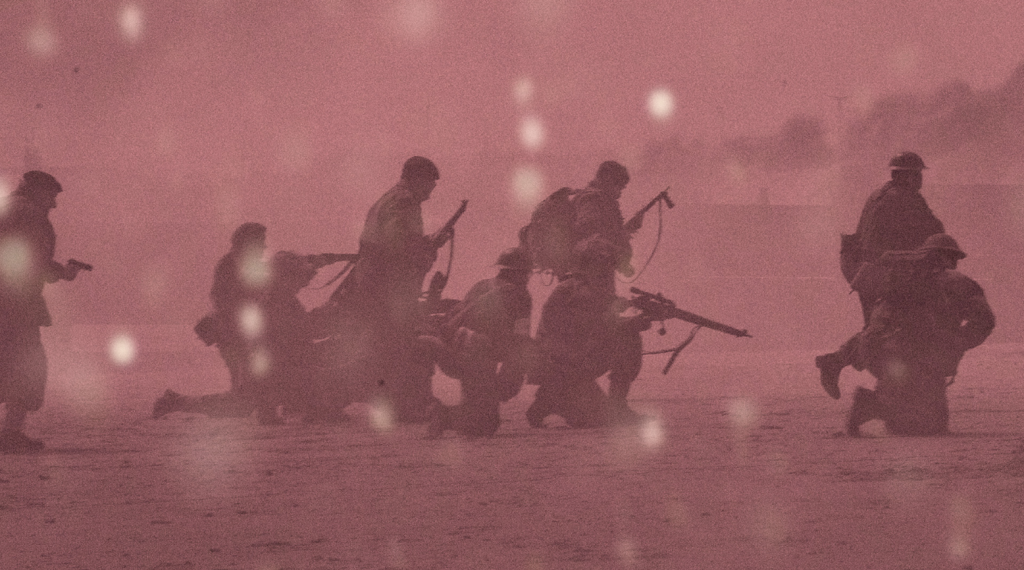
Read
“And this will be a sign for you: you will find a baby wrapped in swaddling cloths and lying in a manger.” Suddenly, a vast host of angels joined the first angel, praising God and proclaiming, “Glory to God in the highest, and on earth peace among those with whom he is pleased!” (Luke 2:12–14)
Reflect
From 1914 to 1918, Europe was devastated by what was then the most terrible war in human history. It was so dreadful that people hoped it would be “the war to end all wars.” But they didn’t know that, just a few decades later, this era of slaughter would have to be renamed “World War I” to differentiate it from an even more brutal conflict.
Ever since sin entered the world, peace has been hard to come by. Fallen humans are so inclined towards violence that a just authority is needed to keep them in check (Romans 13:1–7). Still, our hearts long for the lost paradise, where the lion ate straw like an ox, and there was no harm or destruction in all of God’s holy mountain (Isaiah 65:25; see also Genesis 1:30). Fortunately, God’s prophets have promised that a new and better Eden is on its way, where “nation shall not lift up sword against nation, neither shall they learn war anymore” (Isaiah 2:4; Micah 4:3; see also Isaiah 11:6–9).
A simple look at the news is enough to show us that this prophecy has not yet fully come true; it still belongs to the “not yet” phase of God’s kingdom. However, when we meditate on passages like Luke 2:14, we can see that God is already bringing some measure of peace back to the earth. There is a group of people “with whom [God] is pleased,” among whom true peace, or “shalom,” exists. We call this group the church—all those who, by faith, have accepted the “Prince of Peace” (Isaiah 9:6) as their Savior.
Those of us who are justified by faith now have peace with God (Romans 5:1). When we are reconciled to God, we are also reconciled to one another. Christ “broke down in his flesh the dividing wall of hostility… that he might create in himself one new man… so making peace” (Ephesians 2:14–15). Because God has shown us peace, we can share that peace with others.
This doesn’t mean that peace comes easily or automatically. If it did, many of the exhortations in Paul’s letters wouldn’t have been necessary. But peace is an essential part of who we are as Christians. Our responsibility as followers of Christ is to become more like him, to live in a way that is worthy of our calling, and to preserve the unity of the Spirit through the bond of peace (Ephesians 4:3). By the power of the Holy Spirit, we should seek peace with our enemies and fight against the desires that cause conflicts among us (Galatians 5:16; James 4:1).
The “war to end all wars” has already been waged. It began at Christmas, was won on Good Friday, and was announced on Easter morning. Although we are still waiting for its complete fulfillment, we get small glimpses of it whenever we forgive someone, baptize a new believer, or share in the Lord’s Supper. May these moments of God’s grace stir our hearts to praise: “Glory to God in the highest, and on earth peace among those with whom he is pleased!” (Luke 2:14)
Respond
Think about practical ways you can work to maintain peace among the members of your local church. Also, consider whether peace is a characteristic of your online interactions with others.
Rejoice
Hark! the herald angels sing
“Glory to the newborn King
Peace on earth and mercy mild,
God and sinners reconciled!”
– Charles Wesley, “Hark! The Herald Angels Sing”
Editors’ note:
This meditation is from The Weary World Rejoices: Daily Devotions for Advent, edited by Melissa Kruger (TGC, November 2021). You can buy it through the TGC Bookstore or Amazon.
Can I get more information about Advent Meditation?
Do you have any other articles about peace on earth?
Are there any ways to achieve peace on earth?

